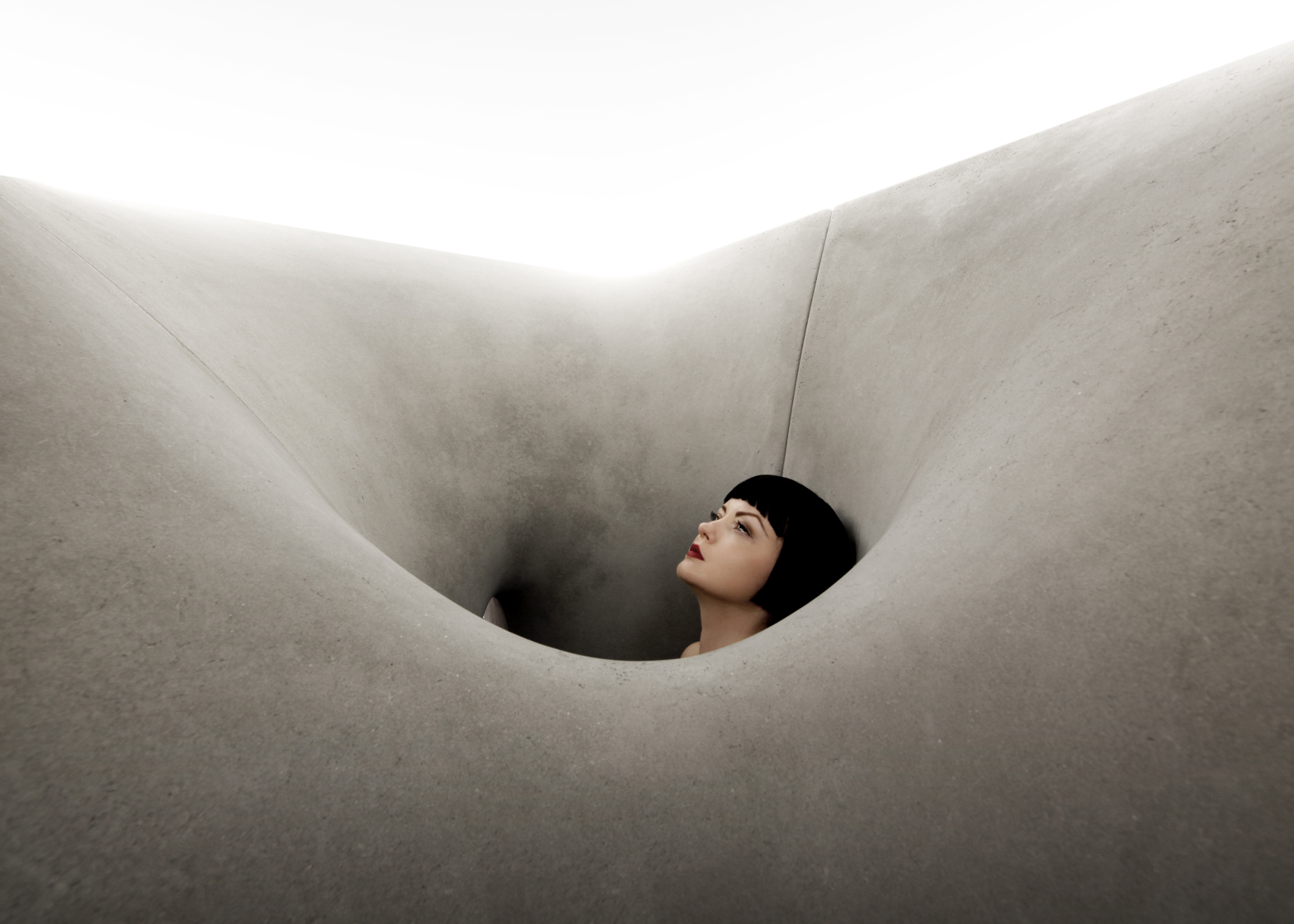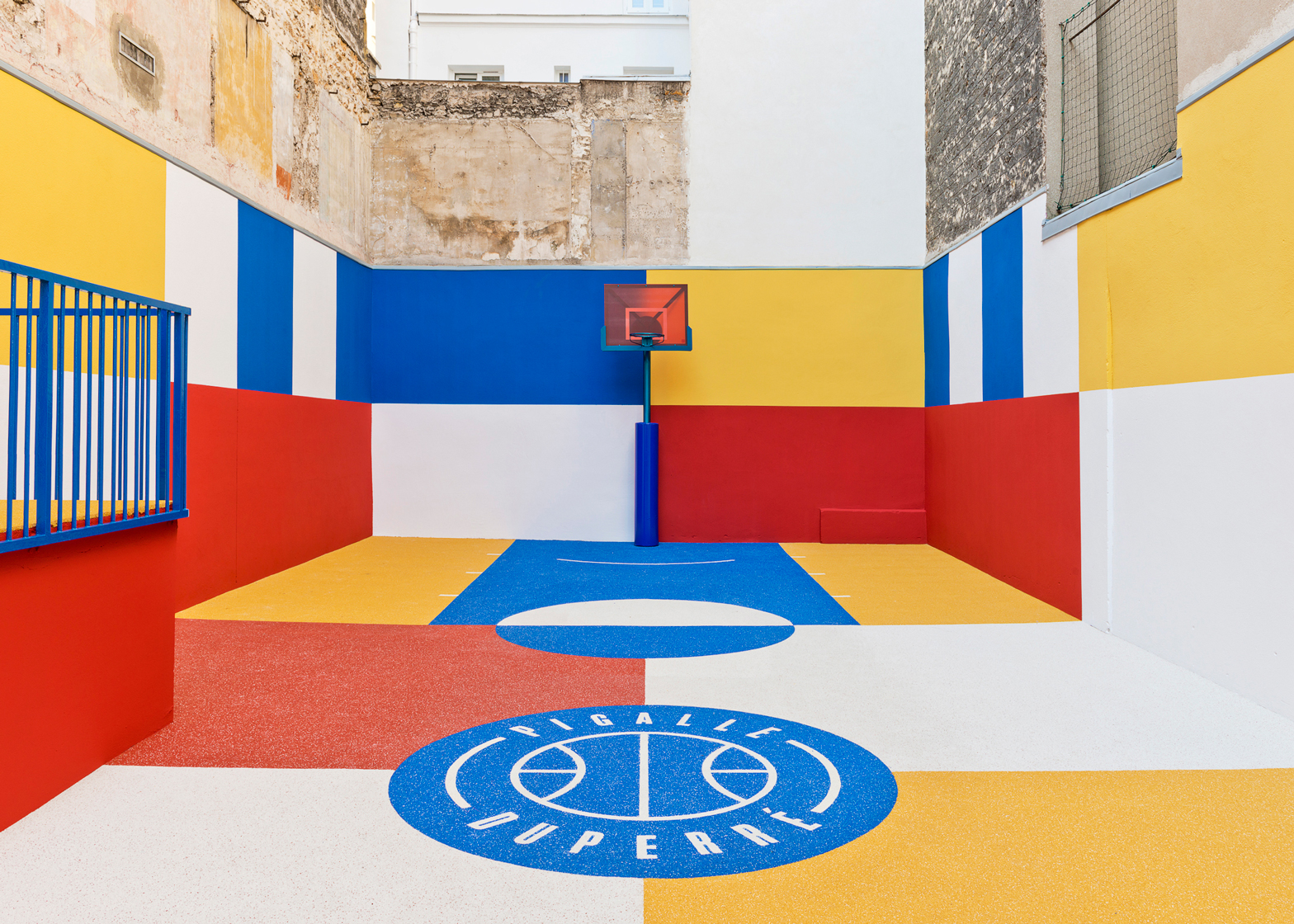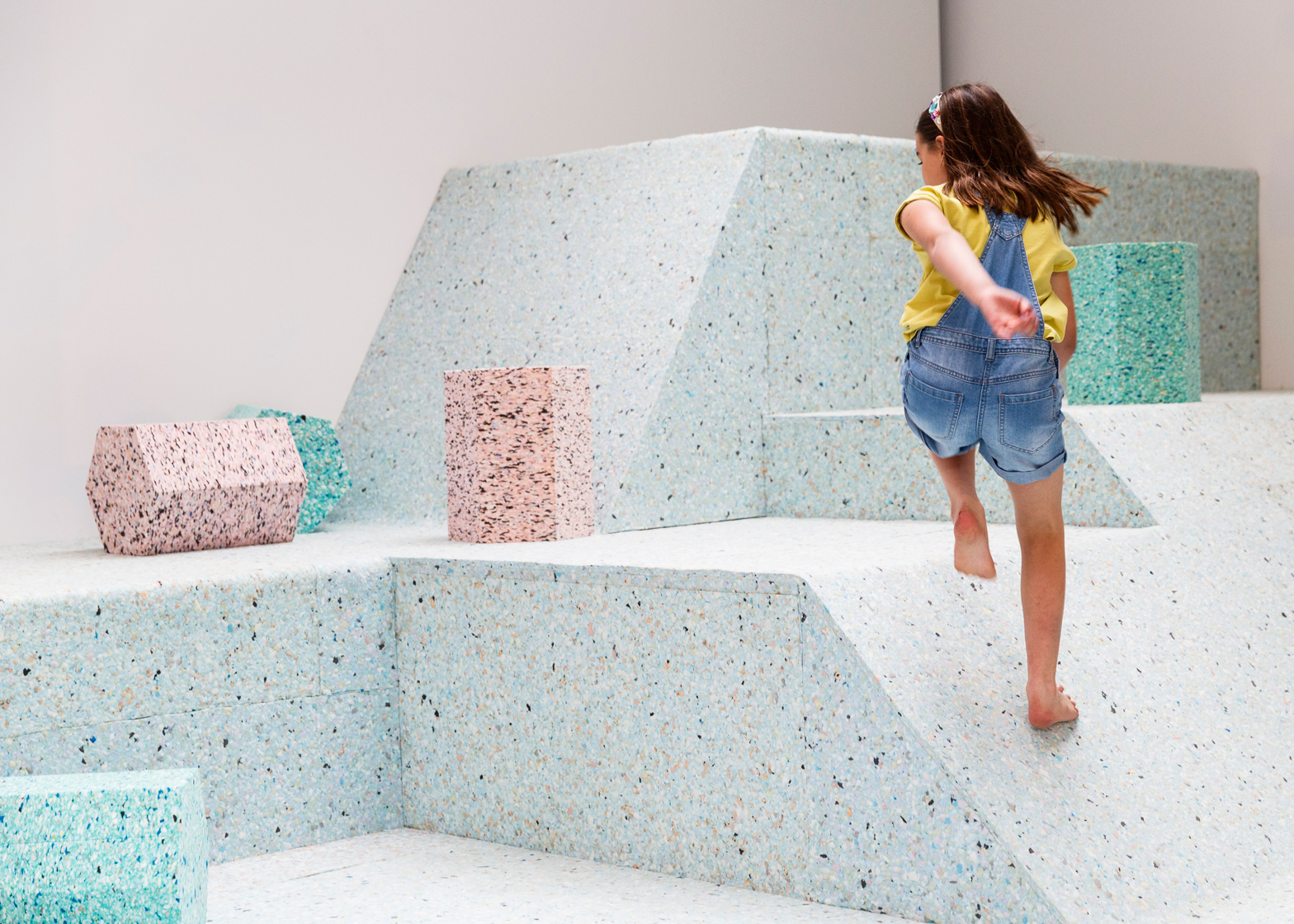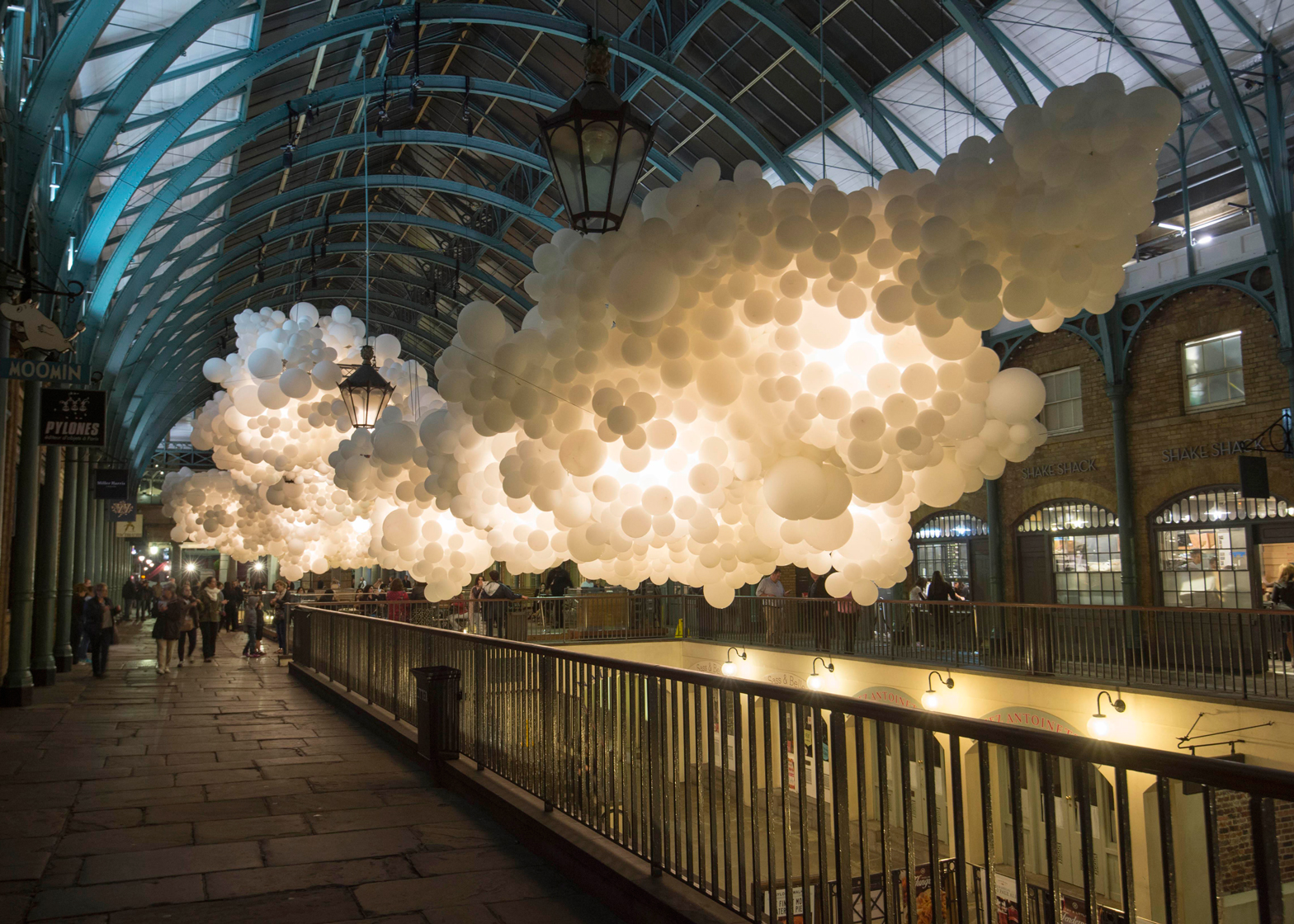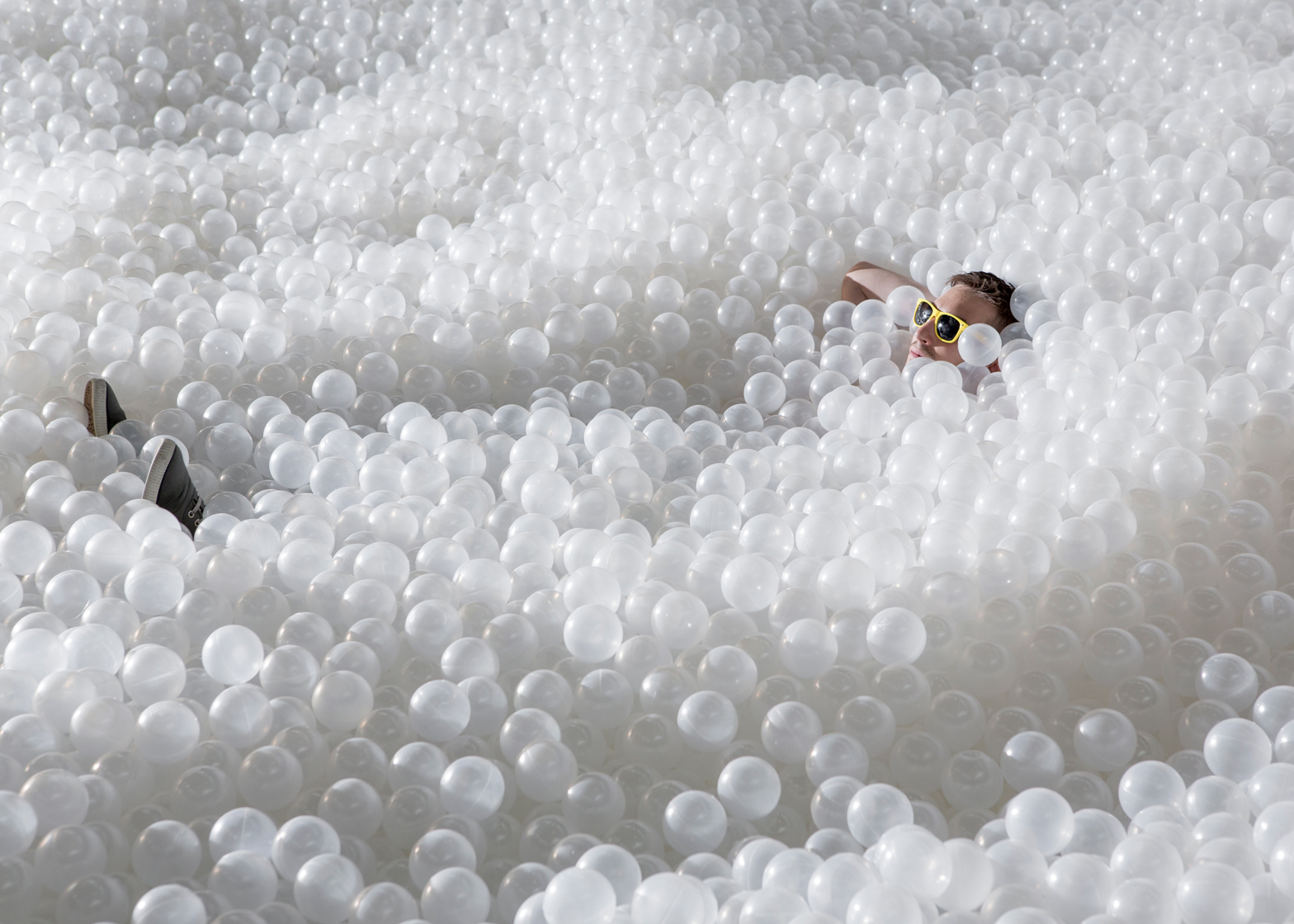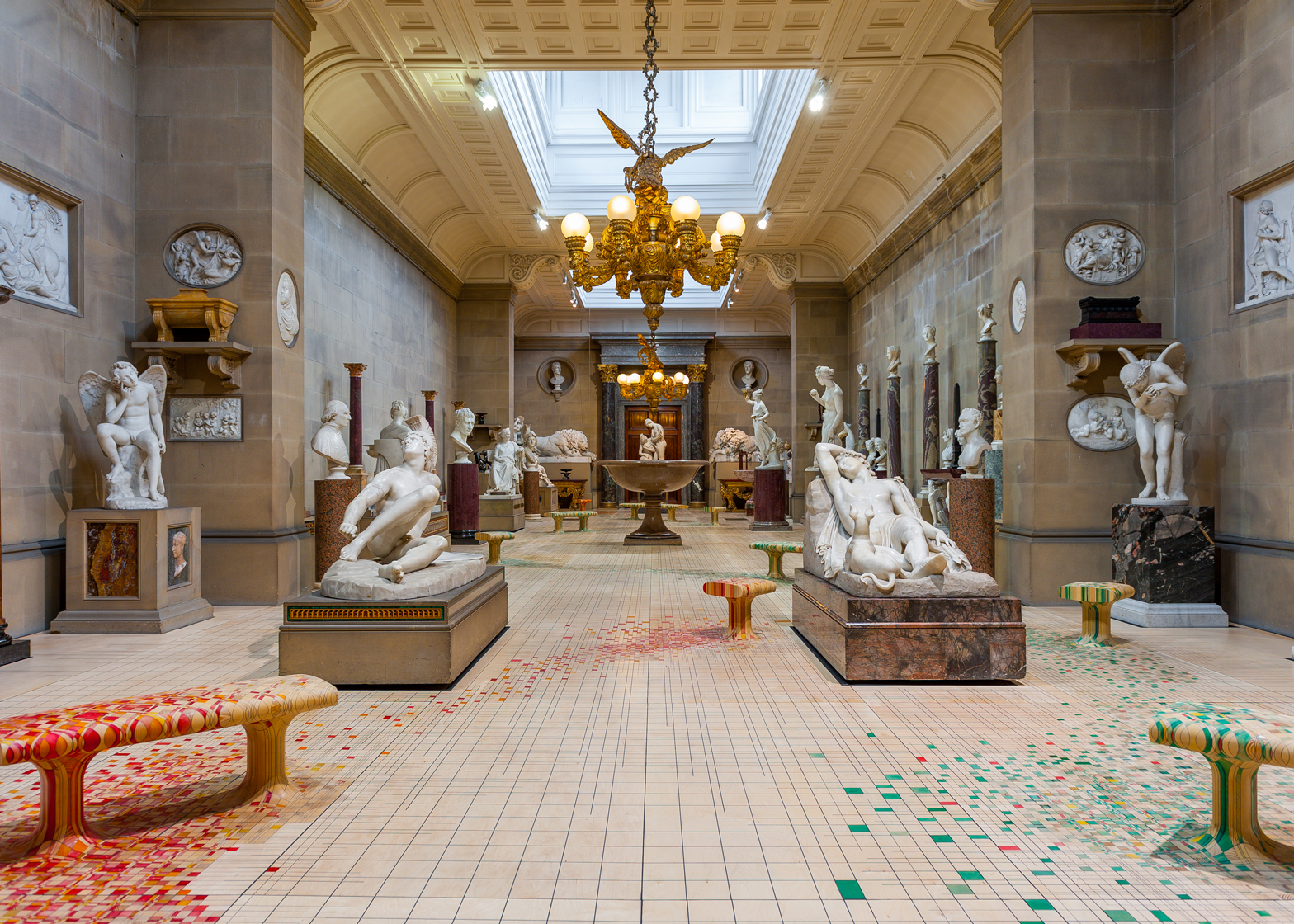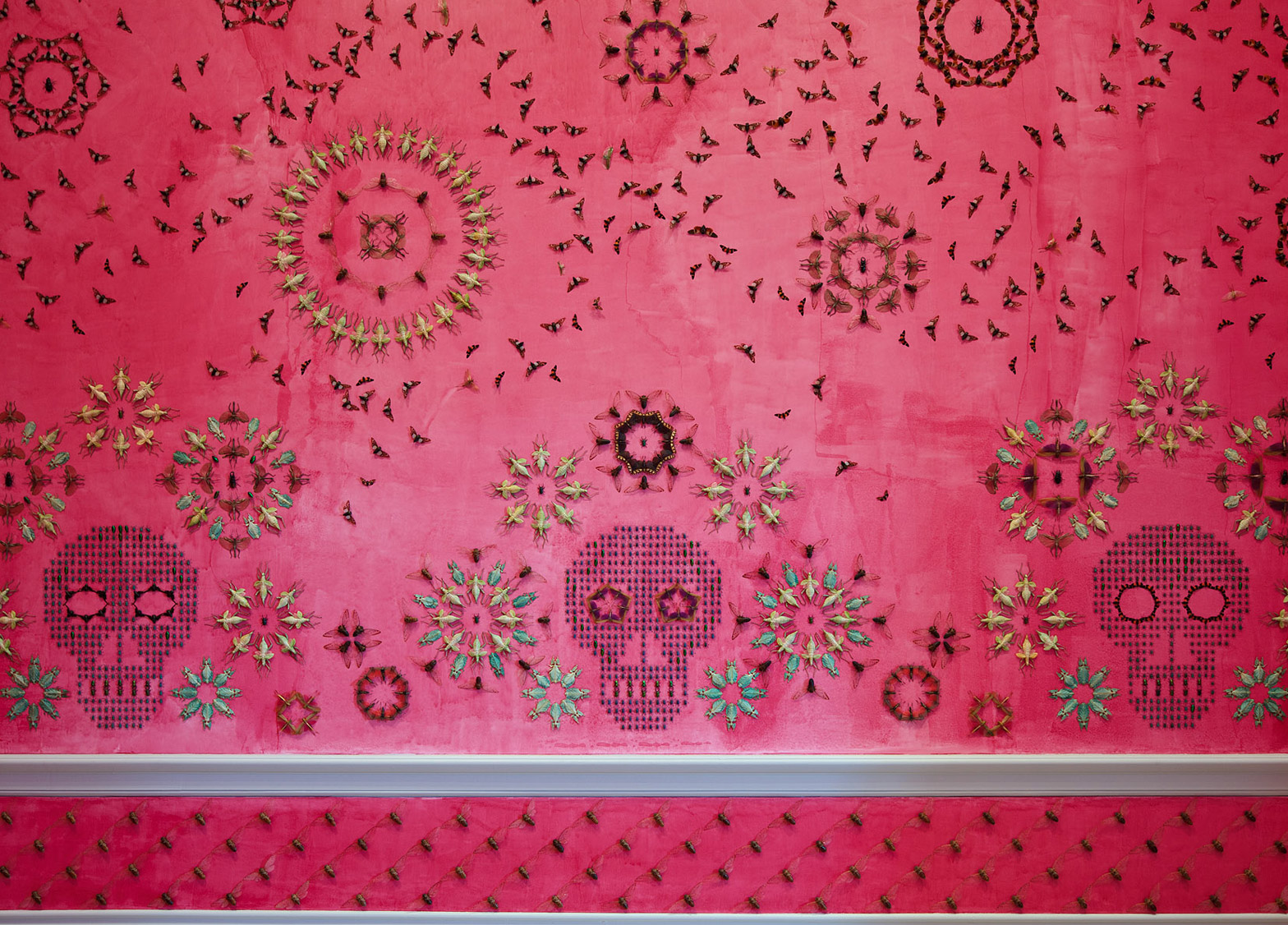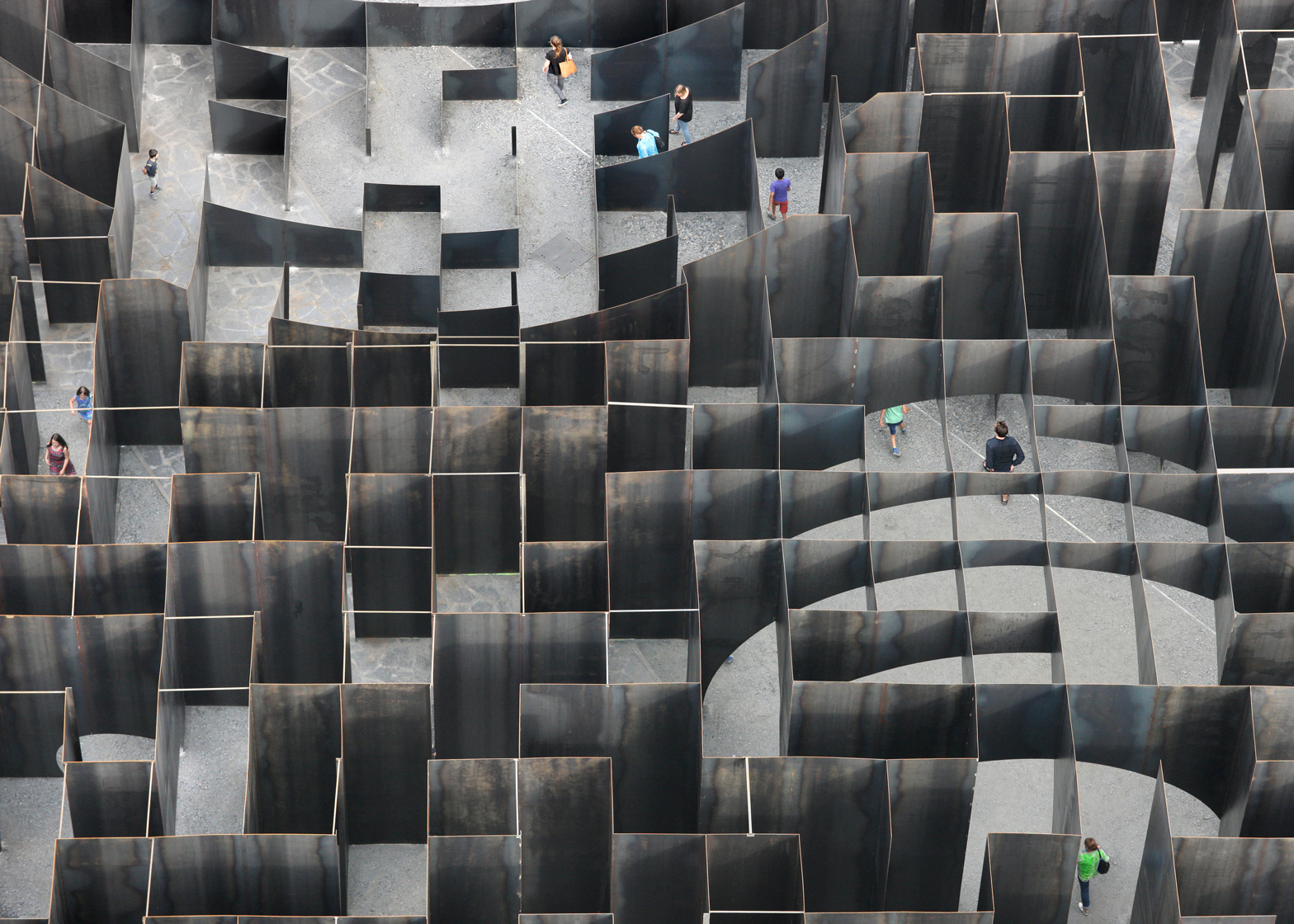Dezeen design editor Dan Howarth's 10 favourite installations from the past 12 months include a Brutalist playground recreated in foam, a giant steel maze and a brightly coloured basketball court (+ slideshow).
Shipping containers have become increasingly popular as architectural components, but Swiss studio Bureau A chose to use them as a sculptural material for the first edition of the biennale for independent art spaces (BIG) in Geneva.
Fifty of the blue metal blocks were arranged into a circle and stacked up to form a recreation of prehistoric English stone circle Stonehenge, aptly titled Steelhenge. Find out more about Steelhenge »
The Midnight Garden by Jennifer Angus
For the reopening of Washington DC's Renwick Gallery, artist Jennifer Angus decorated a vivid pink room with intricate pattern of real insects.
Designed to resemble wallpaper, the bug-covered wall installation was titled The Midnight Garden and made using preserved insects from a variety of species. Find out more about The Midnight Garden »
Also in Washington DC, Snarkitecture transformed the grand hall of the National Building Museum into a "beach" featuring a sea of translucent balls.
Nearly one million plastic balls were used to create the pool, in which visitors could "swim" between the hall's 48-metre-high columns. Find out more about The Beach »
Architecture studio Matter Design created "a condensed concrete spa" that users could poke their heads up through.
Microtherme comprised a wooden box with sculptural interior walls, which radiated different temperatures to create an "intimate and contradictory set of experiences". Find out more about Microtherme »
French artist Charles Pétillon used 100,000 white balloons to create his Heartbeat installation under the roof of the 19th-century Market Building in London's Covent Garden.
The balloons – typical of Pétillon's work – formed a meandering trail through the south hall of the Grade II-listed building, and pulsated with a glowing white light designed to represent a heartbeat. Find out more about Heartbeat »
Ill-Studio tucked a colourful basketball court between a row of apartment buildings in Paris' 9th arrondissement.
Named Pigalle Duperré, the recreation area was renovated to form a fashion show backdrop for brands Pigalle and Nike. Patterns of red, blue, yellow and white rubber cover the surfaces and mark out the sections of the court. Find out more about Pigalle Duperré »
Labyrinth by Gijs Van Vaerenbergh
A kilometre of steel corridors formed this industrial-looking maze at a former Belgian coal mine by studio Gijs Van Vaerenbergh.
Installed at the C-mine arts centre in Genk, the Labyrinth measured 37.5 square metres and used 186 tons of five-millimetre-thick steel plates for its walls. Find out more about Labyrinth »
Brutalist Playground by Assemble
London architecture collective Assemble, which became the first non-artists to win the Turner Prize this year, used foam to create full-size replicas of playground designs from architecture's Brutalist era.
The Brutalist Playground filled an entire gallery inside the Royal Institute of British Architects headquarters on Portland Place in central London. Find out more about Brutalist Playground »
Caesarstone Movements by Philippe Malouin
A Neoclassical palazzo in Milan hosted a set of swings made using solid-surface material Caesarstone during the city's design week in April.
The Caesarstone Movements interactive installation was created by London designer Philippe Malouin to present different colour varieties the synthetic stone. Find out more about Caesarstone Movements »
Curved wooden benches and stools "grew" from a gridded floor of dyed timber installed in the sculpture gallery at English stately home Chatsworth House.
Raw Edges was commissioned to created the installation inside the 19th-century sculpture gallery, as part of an exhibition of seat furniture named Make Yourself Comfortable. Find out more about Endgrain »

